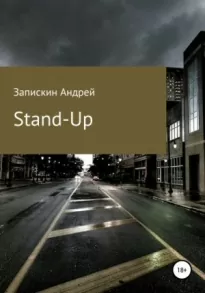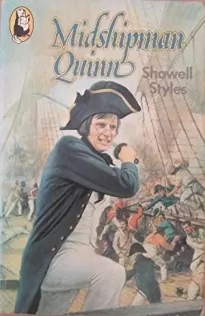RED SYMPHONY

- Автор: Dr. Landowsky
- Жанр: Старинная литература
Читать книгу "RED SYMPHONY"
G. - This is interesting: at least as an example of insanity.
R. - Certainly, insanity in a lesser degree than in the case of Lenin, who dreamt of power over the whole world in his attic in Switzerland or the insanity of Stalin, dreaming of the same thing during his exile in a Siberian hut. I think that dreams of such ambitions are much more natural for the moneyed people, living in the skyscrapers of New York.
G. - Let us conclude: Who are they?
R. - You are so naive that you think that if I knew who "They" are, I would be here as a prisoner?
G. - Why?
R. - For a very simple reason, since he who is acquainted with them would not be put into a position in which he would be obliged to report on them ... This is an elementary rule of every intelligent conspiracy, which you must well understand.
G. - But you said that they are the bankers?
R. - Not I; remember that I always spoke of the financial International, and when mentioning persons I said "They" and nothing more. If you want that I should inform you openly then I shall only give facts, but not names, since I do not know them. I think I shall not be wrong if I tell you that not one of "Them" is a person who occupies a political position or a position in the World Bank. As I understood after the murder of Rathenau in Rapallo, they give political or financial positions only to intermediaries. Obviously to persons who are trustworthy and loyal, which can be guaranteed a thousand ways: thus one can assert that bankers and politicians - are only men of straw ... even though they
{p. 25} occupy very high places and are made to appear to be the authors of the plans which are carried out.
G. - Although all this can be understood and is also logical, but is not your declaration of not knowing only an evasion? As it seems to me, and according to the information I have, you occupied a sufficiently high place in this conspiracy to have known much more. You do not even know a single one of them personally?
R. - Yes, but of course you do not believe me. I have come to that moment where I had explained that I am talking about a person and persons with a personality ... how should one say? ... a mystical one, like Ghandi or something like that, but without any external display. Mystics of pure power, who have become free from all vulgar trifles. I do not know if you understand me? Well, as to their place of residence and names, I do not know them ... Imagine Stalin just now, in reality ruling the USSR, but not surrounded by stone walls, not having any personnel around him, and having the same guarantees for his life as any other citizen. By which means could he guard against attempts on his life? He is first of all a conspirator, however great his power, he is anonymous.
G. - What you are saying is logical, but I do not believe you.
R. - But still believe me; I know nothing; if I knew then how happy I would be! I would not be here, defending my life. I well understand your doubts and that, in view of your police education, you feel the need for some knowledge about persons. To honour you and also because this is essential for the aim which we both have set ourselves. I shall do all I can in order to inform you. You know that according to the unwritten history known only to us, the founder of the First Communist International is indicated, of course secretly, as being Weishaupt. You remember his name? He was the head of the masonry which is known by the name of the Illuminati; this name he borrowed from the second anti-Christian conspiracy of that era - gnosticism. This important revolutionary, Semite and former Jesuit, foreseeing the triumph of the French revolution decided, or perhaps he was ordered (some mention as his chief the important philosopher Mendelssohn) to found a secret organization which was to provoke and push the French revolution to go further than its political objectives, with the aim of transforming it into a social revolution for the establishment of Communism. In those heroic times it was colossally dangerous to mention Communism as an aim; from this derive the various precautions and secrets, which had to surround the Illuminati. More than a hundred years were required before a man could confess to being a Communist without danger of going to prison or being executed. This is more or less known. What is not known are the relations between Weishaupt and his followers with the first of the Rothschilds. The secret of the acquisition of wealth of the best known bankers could have been explained by the fact that they were the treasurers of this first Comintern. There is evidence that when the five brothers spread out to the five provinces of the financial empire of Europe, they had some secret help for the accumulation of these enormous sums: it is possible that they were those first Communists from the Bavarian catacombs who were already spread all over Europe. But others say, and I think with better reason, that the Rothschilds were not the treasurers, but the
{p. 26} chiefs of that first secret Communism. This opinion is based on that well-known fact that Marx and the highest chiefs of the First International - already the open one - and among them Herzen and Heine, were controlled by Baron Lionel Rothschild, whose revolutionary portrait was done by Disraeli (in Coningsby - Transl.) the English Premier, who was his creature, and has been left to us. He described him in the character of Sidonia, a man, who, according to the story, was a multi-millionaire, knew and controlled spies, carbonari, freemasons, secret Jews, gypsies, revolutionaries etc., etc. All this seems fantastic. But it has been proved that Sidonia is an idealized portrait of the son of Nathan Rothschild, which can also be deduced from that campaign which he raised against Tsar Nicholas in favour of Herzen. He won this campaign.
If all that which we can guess in the light of these facts is true, then, I think, we could even determine who invented this terrible machine of accumulation and anarchy, which is the financial International. At the same time, I think, he would be the same person who also created the revolutionary International. It is an act of genius: to create with the help of Capitalism accumulation of the highest degree, to push the proletariat towards strikes, to sow hopelessness, and at the same time to create an organization which must unite the proletarians with the purpose of driving them into revolution. This is to write the most majestic chapter of history. Even more: remember the phrase of the mother of the five Rothschild brothers: "If my sons want it, then there will be no war." This means that they were the arbiters, the masters of peace and war, but not emperors. Are you capable of visualizing the fact of such a cosmic importance? Is not war already a revolutionary function? War - the Commune. Since that time every war was a giant step towards Communism. As if some mysterious force satisfied the passionate wish of Lenin, which he had expressed to Gorky. Remember: 1905-1914. Do admit at least that two of the three levers of power which lead to Communism are not controlled and cannot be controlled by the proletariat.
Wars were not brought about and were not controlled by either the Third International or the USSR, which did not yet exist at that time. Equally they cannot be provoked and still less controlled by those small groups of Bolsheviks who plod along in the emigration, although they want war. This is quite obvious. The International and the USSR have even fewer possibilities for such immense accumulations of capital and the creation of national or international anarchy in Capitalistic production. Such an anarchy which is capable of forcing people to burn huge quantities of foodstuffs, rather than give them to starving people, and is capable of that which Rathenau described in one of his phrases, i.e.: "To bring about that half the world will fabricate dung, and the other half will use it." And, after all, can the proletariat believe that it is the cause of this inflation, growing in geometric progression, this devaluation, the constant acquisition of surplus values and the accumulation of financial capital, but not usury capital, and that as the result of the fact that it cannot prevent the constant lowering of its purchasing power, there takes place the proletarization of the middle classes, who are the true opponents of revolution. The proletariat does not control the lever of economics or the lever of war. But it is itself the third lever, the only visible and demonstrable lever, which carries out the final blow at the power of the Capitalistic State and takes it over. Yes, they seize it, if "They" yield it to them ...
{p. 27} G. - I again repeat to you that all this, which you have set out in such a literate form, has a name which we have already repeated to excess in this endless conversation: the natural contradictions of Capitalism and if, as you claim, there is yet someone else's will and activity apart from the proletariat, then I want you to indicate to me concretely a personal case.
R. - You require only one? Well, then listen to a small story: "They" isolated the Tsar diplomatically for the Russo-Japanese War, and the United States financed Japan; speaking precisely, this was done by Jacob Schiff, the head of the bank of Kuhn, Loeb & Co., which is the successor of the House of Rothschild, whence Schiff originated. He had such power that he achieved that States which had colonial possessions in Asia supported the creation of the Japanese Empire which was inclined towards xenophobia; and Europe already feels the effects of this xenophobia. From the prisoner-of-war camps there came to Petrograd the best fighters, trained as revolutionary agents; they were sent there from America with the permission of Japan, obained through the persons who had financed it. The Russo-Japanese War, thanks to the organized defeat of the Tsar's army, called forth the revolution of 1905, which, though it was premature, but was very nearly successful; even if it did not win, it still created the required poltical conditions for the victory of 1917. I shall say even more. Have you read the biography of Trotzky? Recall its first revolutionary period. He is still quite a young man; after his flight from Siberia he lived some time among the emigres in London, Paris, and Switzerland; Lenin, Plekhanov, Martov and other chiefs look on him only as a promising newcomer. But he already dares during the first split to behave independently, trying to become the arbiter of the reunion. In 1905 he is 25 years old and he returns to Russia alone, without a party and without his own oranization. Read the reports of the revolution of 1905 which have not been "pruned" by Stalin; for example that of Lunatcharsky, who was not a Trotzkyite. Trotzky is the chief figure during the revolution in Petrograd. This is how it really was. Only he emerges from it with increased popularity and influence. Neither Lenin, nor Martov, nor Plekhanov acquire popularity. They only keep it and even lose a little.How and why there rises the unknown Trotzky, gaining power by one move greater than that which the oldest and most influential revolutionaries had? Very simple: he marries. Together with him there arrives in Russia his wife - Sedova. Do you know who she is? She is associated with Zhivotovsky, linked with the bankers Warburg, partners and relatives of Jacob Schiff, i.e. of that financial group which, as I had said, had also financed the revolution of 1905. Here is the reason why Trotzky, in one move, moves to the top of the revolutionary list. And here, too, you have the key to his real personality. Let us jump to 1914. Behind the back of the people who made the attempt on the Archduke there stands Trotzky, and that attempt provoked the European War. Do you really believe that the murder and the war - are simp!e coincidences? ..., as had been said at one of the Zionist congresses by Lord Melchett. Analyze in the light of "non-coincidence" the development of the military actions in Russia. "Defeatism" is an exemplary word. The help of the Allies for the Tsar was regulated and controlled with such skill that it gave the Allied ambassadors the right to make an argument of this and to get from Nicholas, thanks to
{p. 28} his stupidity, suicidal advances, one after another. The mass of the Russian cannon fodder was immense, but not inexhaustible. A series of organized defeats led to the revolution. When the threat came from all sides, then a cure was found in the form of the establishment of a democratic republic - an "ambassadorial republic" as Lenin called it i.e. this meant the elimination of any threat to the revolutionaries. But that is not yet all. Kerensky was to provoke the future advance at the cost of a very great deal of blood. He brings it about so that the democratic revolution should spread beyond its bounds. And even still more: Kerensky was to surrender the State fully to Communism, and he does it. Trotzky has the chance in an "unnoticed manner" to occupy the whole State apparatus. What a strange blindness! Well that is the reality of the much praised October revolution. The Bolsheviks took that which "They" gave them.
G. - You dare to say that Kerensky was a collaborator of Lenin?
R. - Of Lenin - no. Of Trotzky - yes; it is more correct to say - a collaborator of "Them."
G. - An absurdity!
R. - You cannot understand ... precisely you? It surprises me. If you were to be a spy and, while hiding your identity, you were to attain the position of commander of the enemy fortress, then would you not open the gates to the attacking forces in whose service you actually were? You would not have become a prisoner who had experienced defeat? Would you not have been in danger of death during the attack on the fortress if one of the attackers, not knowing that your uniform is only a mask, would have taken you for an enemy? Believe me: despite the statues and mausoleum - Communism is indebted to Kerensky much more than to Lenin.
G. - You want to say that Kerensky was a conscious and voluntary defeatist?
R. - Yes to me that is quite clear. Understand that I personally took part in all this. I shall tell you even more: Do you know who financed the October revolution? "They" financed it, in particular through those same bankers who had financed Japan in 1905, i.e. Jacob Schiff, and the brothers Warburg; that means through the great banking constellation, through one of the five banks who are members of the Federal Reserve, through the bank of Kuhn, Loeb & Co., here there took part also other American and European bankers, such as Guggenheim, Hanauer, Breitung, Aschberg, the "Nya Banken" of Stockholm. I was there "by chance," there in Stockholm, and participated in the transmission of funds. Until Trotzky arrived I was the only person who was an intermediary from the revolutionary side. But at last Trotzky came; I must underline that the Allies had expelled him from France for being a defeatist. And the same Allies released him so that he could be a defeatist in allied Russia ... "Another chance." Who arranged it? The same people who had succeeded that Lenin passed through Germany. Yes, "They" were able to get the defeatist Trotzky out of a Canadian camp to England and send him on to Russia, giving him the chance to pass freely through all the Allied controls; others of "Them" - a certain Rathenau - accomplishes the journey of Lenin through enemy Germany. If you will undertake the study of the history of the revolution and civil war without prejudices, and will use all your
{p. 29} enquiring capabilities, which you know how to apply to things much less important and less obvious, then when you study informations in their totality, and also study separate details right up to anecdotal happenings you will meet with a whole series of "amazing chances."
G. - Alright, let us accept the hypothesis that not everything was simply a matter of luck. What deductions to you make here for practical results?
R.--Let me finish this little story, and then we shall both arrive at conclusions. From the time of his arrival in Petrograd Trotzky was openly received by Lenin. As you know sufficiently well, during the interval between the two revolutions there had been deep differences between them. All is forgotten and Trotzky emerges as the master of his trade in the matter of the triumph of the revolution, whether Stalin wants this or not. Why? This secret is known to the wife of Lenin - Krupskaya. She knows who Trotzky is in fact; it is she who persuaded Lenin to receive Trotzky. If he had not received him, then Lenin would have remained blocked up in Switzerland; this alone had been for him a serious reason, and in addition he knew that Trotzky provided money and helped to get a colossal international assistance, a proof of this was the sealed train. Furthermore it was the result of Trotzky's work, and not of the iron determination of Lenin that there was the unification round the insignificant party of the Bolsheviks of the whole Left-wing revolutionary camp, the social-revolutionaries and the anarchists. It was not for nothing that the real party of the "non-party" Trotzky was the ancient "Bund" of the Jewish proletariat, from which emerged all the Moscow revolutionary branches, and to whom it gave 90% of its leaders; not the official and well-known Bund, but the secret Bund which had been infiltrated into all the Socialist parties, the leaders of which were almost all under its control.
G. - And Kerensky too?
R. - Kerensky too ..., and also some other leaders who were not Socialists, the leaders of the bourgeois political fractions.
G. - How is that?
R. - You forget about the role of freemasonry in the first phase of the democratic-bourgeois revolution?
G. - Were they also controlled by the Bund?
R. - Naturally, as the nearest step, but in fact subject to "Them."
G. - Despite the rising tide of Marxism which also threatened their lives and privileges?
R. - Despite all that; obviously they did not see that danger. Bear in mind that every mason saw and hoped to see in his imagination more that there was in reality, because he imagined that which was profitable for him. As a proof of the political power of their association they saw that masons were in governments and at the pinnacle of the States of the bourgeois nations, while their numbers were growing all the time. Bear in mind that at that time the rulers of all the Allied nations were freemasons, with very few exceptions. This was to them an argument of great force. They fully believed that the revolution would stop at the bourgeois republic of the French type.





